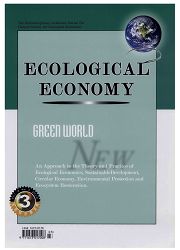

 中文摘要:
中文摘要:
Grassland is most important in China due to its multi-functions. However, about 90% of total usable grassland in China has been degraded and the degradation expands at a rate of 2 million ha per year. Western China covers 6.12 million square kilometers and 63.8% of the total national area with a distribution of 50 minority nationalities and 75% of the minority national population. Ecological environment there is very vulnerable with more than 90% areas of the annually increased degradation taking place. Under the current tenure arrangement, the individual herder households become the main and direct users of grassland, their decision-making on grassland management may have crucial impact on ecological environment as well as their livelihoods. Thus, it is necessary to examine the determinants of their grassland management behaviors. This study applies 231 household field data from 6 provinces of western China and uses econometric models to explore the major constraints for restricting the herd households’ grassland management behaviors. Main results show that under the current tenure and other governance measures, institutional factors, market price and herder’s farm and household’s characteristics affect the grassland management behaviors.
 同期刊论文项目
同期刊论文项目
 同项目期刊论文
同项目期刊论文
 期刊信息
期刊信息
